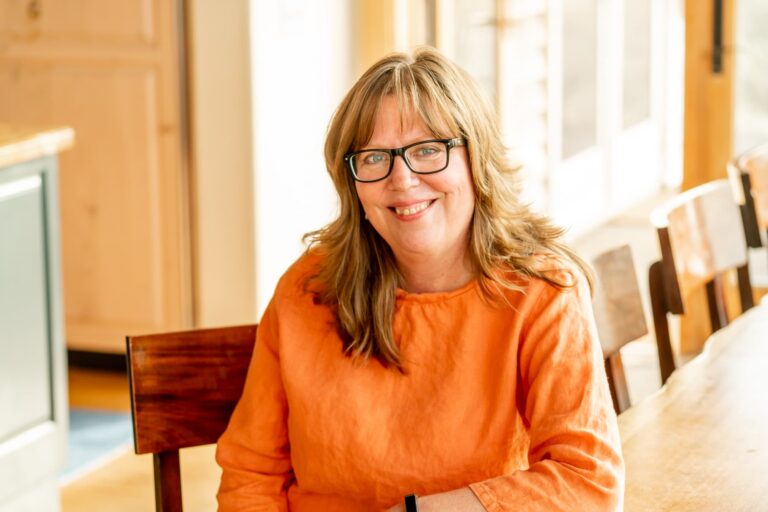Enneagram for Widows: A Unique Self-Awareness Tool
Have you ever heard of the Enneagram? It can be a real game-changer for widows working through grief and finding their footing again. When we think of the Enneagram for widows, we think about how it’s more than just about personality types; it’s like a roadmap to your deepest fears and motivations.
Our guest today is Tami Imlay and she’s talking all about the Enneagram and neuro-coaching and all the fascinating ways we learn and grow through grief. She’s a master certified executive coach, trained therapist, and air force veteran, who shares her incredible journey and insights following the loss of her husband, a fighter pilot. We explore the power of the Enneagram in understanding a widow’s core motivations and thoughts, finding relief and empowerment in intentional healing, and embracing both shortcomings and strengths.
This ancient, yet ever-relevant, self-awareness tool offers clarity and direction in the most challenging of times. Understanding your Enneagram type can help you identify your natural coping mechanisms and potentially unhealthy patterns guiding you to more adaptive ways of handling your grief and emotions.
Key topics in this episode include:
- The Enneagram as a powerful self-discovery tool, helping widows recognize their gut reactions, thought processes, and core fears
- How understanding your Enneagram type can help in processing loss more effectively
- The transformative potential of neuro coaching and rewiring the brain
We’re diving into the nitty-gritty of all things Enneagram and how widows can find new ways to approach life challenges and understand their needs better using this unique self-awareness tool.
Listen to the Full Episode
Links + Resources From This Episode
- Tami’s website
- Tami’s pocast
- Tami’s Facebook group
“Here’s why we react and why we do what we do. Now, it’s not your fault.”
Episode Transcript
Melissa: I am so excited to have Tammy Imlay here with us today. She was a speaker in our recent Holiday Hope Ssummit and I just needed to have her on here because I want to pick her brain about all things Enneagram, neurocoaching, everything.
So Tammy is a master certified executive coach. She’s a trained therapist and an air force veteran. Tammy uses human science and neurocoaching for understanding actions and achieving results. In her practice, she identifies your strengths, motivations, gifts and talents and guides you to leverage them. Tammy believes you already possess everything needed to be extraordinary.
I am just so thrilled to have here so let’s just kind of dive in.
If you wouldn’t mind sharing a little bit about your widow story.
Navigating Loss and Transformation as a Military Widow
Tami: Absolutely. First, thank you so much. Thank you for allowing me to speak at the Holiday Hope Summit because I love serving widows. I absolutely love widows. I love their hearts. I love what they do and how they use their grief to help others, too.
There’s something about widows that once you’re in this club, it’s not a club you want to be part of, but once you’re in it, there’s some extraordinary women who are walking alongside of you and you’re one of them. So thank you so much for thinking about me and inviting me to speak here.
My widow journey started almost twelve years ago. I was 32 and I had a two and four-year-old. I was an air force officer and I got out of the service when I had my son. And I was married to a fighter pilot. And we knew that to have a life that we wanted, only one of us could serve. And so he stayed in and I got out and we were building a life. We were building a family, a vision and a future together. And my husband went on his first deployment.
I had deployed before, so we kind of knew what to expect. I had been to the locations he was going to, and so I had a peace in my heart about it. I also had kind of unrest about everything, and I will share more about that in another time. But my husband went on his first deployment. Well, about two weeks after he left, I went to a birthday party for my son’s best friend. They were four. My son just had a birthday, so I was in toddler mode. You know, the window between lunch and nap time.
Like, if you have a window to get them into nap time, otherwise the whole day is chaos.
Melissa: Yeah, meltdown city, right?
Tami: My mind was like, okay, get them lunch, get them to bed. And I walk in the door, I pull into the garage, close the garage. The kids are like, “oh, I’m hungry.” So, I’m like “okay, let’s do this.” And I got a knock on the door. And I was like, who knocks on the door anymore? Who comes without announcing themselves? I open the door, and it’s three men in uniforms.
And it was one of those moments that my brain immediately told me, oh, it’s an award! It’s something good that they’re here for.
Well, they walk in and they gave me the news that my husband was killed in action. It was two weeks and eight hours after he left, and it was devastating. My best friend, my high school sweetheart, the love of my life, and the father of my two kids. In one moment, my whole life changed. I lost my culture, the military culture, because now I’m a military widow. I lost my best friend, my kids’ father.
All of these things that I know so many, everybody listening goes through. It’s not just one person you lost. You also lose part of yourself in that. And the crazy thing is that as I was sitting on the floor, like, completely in shock, and my kids are, “mommy, I’m hungry. Mommy, what’s wrong?” And it’s like I felt on my shoulders that it was, I’m a woman of faith, and I felt the holy spirit saying, this is going to be tough. This is going to be hard. And I’m like, okay, a little bit of an understatement there, right? But this is going to be used for good. One thing that you never get an answer to is why.
And you may know why, the specific thing, like the order of events, but you never understand why. And that’s one thing that I wanted to understand. Maybe not get closure on the why, because I don’t think we ever really get closure and probably never will.
But I wanted to know, okay, what do I do with this? How do I grieve? How do I do this properly? At the time, I didn’t realize why I wanted to just check some boxes. Get a therapist. That’s what you’re supposed to do.
So I went and got a grief therapist. And I don’t know if many of you have had the same experience, but she was terrible. She was a therapist who happened to also have grief checked on her box.
So I was like, oh, well, that was terrible. I guess I’m supposed to be a therapist. And my friends are like, “well, of course you’re supposed to be a therapist. This is what you’re made to do.”
So I went to therapy, and you really are your first client when you go through that. I also realized that a majority of the therapists, when they go through school, they avoid grief training like the plague. All of my internships, all of my professors, they’re like, “oh, good. If we have a client who needs grief therapy, they’re coming to you.” So I made grief my specialty because, hey, that’s what I understood. That’s what I knew. And from there, I was like, okay, but this is not the end of my journey.
You get to the point of health and growth, and that’s where therapy ends. And it’s like, that’s not enough for me. I want to know. I want to have a life. I didn’t want to be in grief my whole life. And I have a two and four-year-old. I don’t want them to be in grief for their whole lives.
So I was introduced to this idea of coaching, and with that, I started diving into the Enneagram.
Embracing Widowhood and Finding Strength Through the Enneagram
Melissa: Yeah, we’ll need to explain that for folks who don’t understand.
Tami: So everyone knows Myers Briggs. Everyone knows about DISC assessments, and I want to know why I do what I do and why I couldn’t do what I really wanted to.
What is stopping me from getting and doing what I really want? And why do I keep responding and reacting in this way?
I avoided Enneagram like the plague, because it’s very vulnerable. You go do the Myers Briggs, and you see that, and you’re like, okay, here’s a pretty picture of your ideal career, and here’s what you’re good at.
Melissa: There’s 16 spots that you fall into, and it’s more business related, because that’s the first time I was exposed to Myers Briggs with my company. They wanted everybody to take it so we could figure out how to work in teams and all that stuff.
Tami: Yeah, exactly. And the crazy part is, as you grow, you can shift. I am a lot more introverted than I used to be.
Melissa: Me too.
Tami: And I believe that part of that was actually through the widow’s journey. I don’t know about you, but becoming a widow gave people permission to say things and ask me questions that they had no business bringing up.
Melissa: Right.
Tami: It would not be like, “no, I’m not going to tell you how my finances are.” Or “no, I’m not going to tell you how I’m choosing to parent my child. You didn’t ask me that two weeks ago, before my husband died.”
It’s crazy, because a lot things shift. And I was like, okay, but that’s still not getting to my core motivations. Why do I do what I do? Why am I introverted in this area and extroverted in the other? Why am I having such a profound visceral reaction to this comment when this one is like, okay, I can handle that? Why is it that I’m not crying when I should be crying? Or why am I not logically thinking about this? Why is it that I have such a gut reaction?
Enter the Enneagram. One of the things that I know is when things start coming at me multiple times, I’m like, okay, I need to pay attention to this. And I took, I want to say, at least five or six Enneagram assessments because I didn’t like my answers, but they were all the same.
Melissa: Did you always get the same result every time?
Tami: Every time, every question or every assessment, I got the same one. And if you know anything about the Enneagram. I’m an Enneagram 1. I am the moral reformer formerly known as the perfectionist. They’ve kind of changed some of the terms to make them a little more clear. But what I started to realize and my grief journey is what propelled this, is that I didn’t want to get stuck doing the same thing and feeling the same way for my whole life, and I didn’t want that for my kids.
Melissa: It’s confusing. You bring up the point of the loss of identity. Every widow feels like that. Who am I now? I am not a wife anymore. Why am I behaving this way? We tell widows not to “should” on themselves.
But you’re like, I should be crying and crawling under my bed right now, but I’m still functioning. What’s wrong with me? I think that’s a lot of the conversation going on in our heads. It’s like, why? Is something wrong with me? So I think personality assessments like Enneagram are just so mind blowing and so powerful as a tool to figure out who am I? And kind of delve into that loss of identity and discovering who you are.
Please tell us more about what exactly is the Enneagram and how we could use that to move us forward briefly.
Tami: So this is a science that goes back thousands of years. It’s human science. It is the study of people. What’s different between this and the other personality assessments is that it goes directly to our core fears, our core motivations. It is more nature versus nurture. We are born with this one number. This is basically the lens. Like the pair of glasses that you see the world in. There are nine different numbers even within that.
Again, we want to keep this shorter, so I’m not going to go into all of it or throw in a bunch of lingo just to confuse people, because it really doesn’t have to be that confusing. But the nine pairs of glasses that we put on, this is our first response. This is our reaction. This is our center of intelligence. This is the way we see the world. And you’re like, “ok, Tammy, there’s more than nine types of people.” And it’s like, absolutely. One thing the Enneagram does is instead of putting you in a box and says, “this is what you are,” it opens the box and pulls you outside and says, “okay, now what?”
This is your core motivation. This is your core fear. This is your gut reaction. This is how you think about things. What do you want to do about it? Again, we won’t go too much into it, but common terms are you have your wings. And with that you’ll see, I’m a one wing nine because you think of a bird. So as a one, I could even have a nine or a two wing.
Melissa: I’m a two, okay. And sometimes I think I’m a one.
Tami: But yes, there’s also science behind that depending on your upbringing, if it was more acceptable to have one tendency in your environment, you can pull those, and they’re showing that you can cloud your own motivations because it’s more acceptable. But as a two, you could have a one or a three wing. And these nine types just give you that ability to say, okay, here’s why we react and why we do what we do. Now, it’s not your fault.
Typically, and I know this from neuroscience, is that our brains respond because of things that we’re taught. It doesn’t even have to be directed to us before the age of five. And actually, they’re now saying that closer to the age of two.
Melissa: So kind of nonverbal, pre verbal. Absolutely.
Tami: Before you had a chance to say, “oh, yeah, I want to remember that, or, oh, I don’t want to do that,” your brain is already filtering. Ooh, that’s going to keep me safe. And safety is our brain’s primary goal.
Melissa: Right.
Tami: When you become a widow, your brain goes into safety mode. It shuts off any nonessential activities or activities that it thinks you don’t need for survival. Which is why we’re exhausted, which is why we have widow brain, which is why things that we used to love don’t entertain us anymore, don’t excite us. We can’t have that, because basically our brain is like, “oh, we don’t need this. We’ve got to just survive right now. So I’m just going to turn that off.”
This is one reason why art therapy, music therapy, is so important, because if you don’t intentionally activate those parts of the brain, they will stay dim.
It hurts, and it’s hard to turn things like that on. But it’s possible. You just get to choose to do it. When I was studying the Enneagram, that’s when I realized the role that my husband filled for me. The things that he was my cheerleader. He always told me, “well, you can do it.” It’s interesting, just the comments that he would make, and I would reflect on that. When I lost him, I lost those as well.
Melissa: Right. Because he believed in you. He had your back. He believed in you probably more than you believe in yourself. And so that’s gone.
Tami: He did not take the Enneagram assessment, but from my research and what I know about him, because we were 14 when we met, so I know a lot about him, I’m pretty sure he was an Enneagram 8. And eights are those are willing to go toe to toe with anybody to protect their people. And that’s one thing he did for me, is he made sure when I was questioning, because having that perfectionistic tendency, like, I want to get things right, which also paralyzes me because if I don’t feel like I know the right way, again with my grief, I was trying to get things right when that was not even possible. And so by starting to study the Enneagram, it opened up my eyes to this is what my motivations are. These are what my fears are and why I’m reacting in this way.
And then I had to ask myself the question, so now that you understand this, what are you going to do about it? And I’ve been able to change the trajectory of my choices because of that.
Melissa: I did a lot of personality assessments on top of the Enneagram, just when I was trying to figure out, who am I? Who am I now? Who am I going to be? What do I even like? I don’t even like the same foods anymore. It just turned everything upside down. Did you find that? You just had this sense of relief, like, oh, I finally understand after all these years why I think this way or do these things or allow these things to happen, and it’s because I’m trying to keep myself safe, or my brain is trying to keep myself safe. Did you find that?
Tami: Oh, absolutely. It was a sigh of relief. And now I had a path to focus my energy on. I got to notice what I was thinking about. I got to look at situation. How do I want to show up?
Well, now I get to choose because my normal knee jerk reaction would be to go like this. I know that doesn’t work, and it doesn’t even bring me joy to say that. So now with studying and just getting comfortable asking myself questions like what do you want in this situation? What do you really need in this situation? Then I was able to actually intentionally heal and get on a path that I wanted to be on versus one where I don’t even know what my best is. And that’s not even how I want to be represented.
Melissa: It sounds really empowering, like, you empowered yourself with this information.
Tami: And it’s incredibly vulnerable. There are a lot of people who don’t want to talk about the Enneagram because first, let’s face it, it is a lot easier for us to pick out what our shortcomings are than our strengths. The first introduction to the Enneagram, nine times out of ten will be in a negative way. These are all of the things that are bad or that get under your skin, and they do that because that’s the first thing that we really will latch on to. Our brains, in order to keep us protected, are not going to be like, oh, yeah, those are all my strengths. I’m awesome. Also, we don’t embrace the fact that we may not like some of those things about ourselves.
It’s because we have not unearthed the fact that that is actually a strength that we have.
Melissa: Yes.
Tami: My need to make things better, my need to fix things is actually incredibly important in the world, because if you didn’t have any grief ones, you wouldn’t have any improvements or you wouldn’t have as many improvements.
Melissa: Right. And you wouldn’t be doing what you’re doing right now. Trying to fix it, but to improve somebody’s situation.
Tami: Yes. Empower women to do that. The fact that I need to do it right makes it so I go and I study. I know before we started this, you asked why did I go deeper? It’s because I wanted to know the science behind it. I wanted to know why it’s working and how it’s working for me and how I can help others with it. So as a coach, it’s my natural tendency to want to do it right. And so if I’m going to help people with this, I want to know everything possible. Understanding my tendency to do that, it also allows me to say, no, I actually don’t need to know any more information.
I have all that I need. I’m good enough just the way I am. And so there’s that balance there, but without understanding it, I would have just kept going through more certifications, continuing to do more therapy, because it’s the right thing to do. It’s given me freedom to choose and to say “I’m good enough the way I am.” And I am exactly where I need to be, and I’m an overcomer. And that’s one of the things that I wanted to share with the women listening is that you are exactly who you’re called to be. Like you are right where you are, you’re on time, that you’re not behind or you’re not on the wrong path of healing. If you’re choosing every day to take a step forward, to do something.
You have everything you need, right?
Melissa: Those baby steps. You don’t have to make big moves or think to yourself, well, why aren’t I further along? Or I should be here because somebody else is there. No, it’s your own personal journey. But you can empower yourself very thoughtfully with a thoughtful approach of kind of having some tools and strategies, like the Enneagram.
Exploring Neuro Coaching for Transformation and Healing
Melissa: You’re also a neuro coach and I’m not sure what that is. Do you mind going into that a little bit? And do they work hand in hand with each other?
Tami: The Enneagram itself, I loved it. It got you to a point of, now I know why I do the things I do. How do I change them? If I want to make a change, just thinking differently is not actually helpful because our brains are really good at protecting us. And so with neuro coaching, what I do is we start with the Enneagram.
We start to digest and dive into okay, what are your core motivations? Then we start to look at what you’re thinking. And then through a scientific process you can rewire your brain to actually have the life that you want. One thing about our beliefs is our beliefs are truly a thought paired with an emotion thought over time. There’s nothing in there that says that it has to be true. What our brain is going to do is it’s going to pick the belief that keeps us safe that keeps us in this comfortable discomfort. I like to call it comfortable fear because we know that there’s more, but it’s too scary to step out. It’s too scary. Because we don’t know what on the other side it looks like.
And so that comfortable fear we sit in, we’re not happy here, but we understand it. And our brain is like, we know how to sit and do nothing, right, but you’re like, but I’m miserable. And our brain is like, “good.”
Melissa: We’re safe. We’re keeping you safe. That’s what you said before, too. These thoughts aren’t necessarily true. So that’s a question I’ve been kind of pulling in as of late. I’m asking myself, is that true? It really isn’t, but I feel comfortable in thinking that. Uncomfortable and comfortable thinking that.
Melissa: But, like, oh, is that true? Because it’s holding me back, the things that I’m thinking, not everything, but there’s times when I hold myself back because.
Tami: And I encourage you to ask yourself the question of “how is this belief serving me?” Oh, well, it’s keeping me right where I’m at. Okay, well, do I want to stay where I’m at? With neuro coaching we go through and find those beliefs that are not true and rewire them. In 67 days we go through a process and it is so easy.
Melissa: That’s pretty exact, 67 days. Why is it so exact?
Tami: Okay, so we’ve all heard that it takes 21 days to build a new habit, right? That’s something that’s been out there that’s actually incredibly false and very hurtful. So at the 21 day mark, all of the neuroplasticity, all the highways in our brain, at that point it will start to break. So when we start doing it, the old pattern will start to break. The problem is if we stop there, the passive least resistance will just grow back. So what we have to do is intentionally go through and create a new highway. And so that’s what the 67 days does. It goes through a process called brain priming, where we break this old highway and we create a belief that is true and we use logical and emotional evidence. You show your brain what’s true, because again, our brains do not know the difference between a physical pain and an emotional pain, an imaginary like an image and reality.
Our brains don’t know the difference. And so we use that to our benefit. And so we create a future. We create an identity that is true. And with this, there are safety mechanisms that if it’s not something that our brains actually can believe, we won’t. I can’t believe that I’m going to be an olympic swimmer. Everything in my body says, no, that’s not happening.
But I am the exact mom that my kids need. That’s something that I primed in when I started because I’m like, I have the kids that I need, and they have the mom they need because God doesn’t make mistakes. And so things like that, we prime in the fact that you’re already successful, the fact that you can have a beautiful life and carry grief with you at the same time. You don’t have to allow grief to consume your life. And so the Enneagram kind of jump starts that for us and does a lot of the legwork, and so we can dive in, and it’s actually a beautiful combination. And, yeah, that’s how I get immediate results for my clients is because we systematically go through and look at what we’re thinking about.
Melissa: That’s fascinating to me because I felt like my brain, something was wrong with my brain that was kind of mush because I was in zombie mode. Widow fog, all that stuff is real. I wonder if that is almost, like a perfect time to be doing this type of work, or is there a better time to be doing this work than not? I don’t know.
Tami: So I would say when you are thinking the thoughts of, there’s got to be more, then it’s time. You can’t rush grief, but you can perfect it. Like, you can actively, intentionally move through it, and it’s a choice. Give yourself some grace there, because your brain is shutting down all those nonessentials. There is time that you really do need to sit in your feelings.
Is it three years? I would like to say no.
Is it three months? Maybe that’s at the point where you’re like, okay, I’m ready to. And I hate to move on, move forward. When you start thinking of the thoughts of, there’s got to be more, or, how can I use this? When you’re ready to heal and not get over grief, that’s the moment that this will start working. Because it’s an intentional choice. I can’t do the work for you. You can’t do the work for the people you serve. It’s when you’re ready to live your life in duality.
You can have grief in one hand and a life in the other, and it can be beautiful. You don’t have to put down grief in order to live a life. And so this work helps that. And I would say that trying to do this ten days after you lost your spouse, please don’t. Please give yourself some time. I do think that there’s some counseling that is needed or a support group. So talk about your story, talk about what you want, and then you’ll know one day when your thoughts shift and you’re ready to see what else is available. That’s the moment that this work works for you, right?
Melissa: So you’re not avoiding grief, you’re walking alongside it. But maybe you’re asking yourself, well, what’s next? There’s this blank movie screen now that I had this movie playing on it before, and then my husband died, and now there’s no more movie. I need to create a movie. What is that? That would probably be a good time to kind of dive into this deep work. It’s fascinating.
Tami: I’m going to tell you, it is one of the coolest things that I have ever experienced. I studied therapy and I have amasters in science and I have clients who, on the third session with the Enneagram neurocoaching mix, say that they have made more transformation and more progress in three sessions than they had in three years in therapy.
Melissa: Wow, that’s powerful.
Tami: It’s powerful, and it’s because it’s your choice. You get to choose what you do with it. What happened to you is not your fault. Even the thoughts you have and those beliefs are not your fault. But now it’s your responsibility, and you get to empower yourself with it. It doesn’t have to weigh you down anymore.
Melissa: Yeah, it sounds very future focused. Therapy and grief counseling has its place. But it felt to me more past focused. But I’m somebody who likes to take action and likes to think forward when I’m ready. And so that’s really appealing.
Tami: I want a growth path. I want to stay moving again. We look at our children, and if we continue to look at them through the eyes of grief and their grief, I’m going to tell you, and I’m not telling anything new to all the women who’re listening. If you have children, raising grieving children through your grief is the hardest thing.
When they start reprocessing it. Every developmental stage, we’re in one right now. And I’m like, I thought we were through this, but that’s okay. Let’s do this again. But it’s so hard to do that. But you’re doing it. You’ve embraced that. But when you look at them, you don’t want to look at them with grief eyes.
You want to see what’s possible. Well, they are looking to you to see what’s possible. So if you don’t work on your own grief and create a life for yourself, then you’re telling your kids that this is all there is. And I don’t think any of us want that for our kids.
Melissa: No. I mean, I had young kids, too. They were ten and 13, and it was just so important for me to model for them tha I still get up, you still get up, we eat breakfast, we do homework, I do the responsible things, and we move forward and then we address the grief as wherever they are developmentally. But it was important for me to not shut down completely. But again, I don’t know what I would be like if I didn’t have those kids. I don’t know what my journey would be.
Tami: Agreed. And that’s part of it. It’s like, I think that we go through things and where people are put in our path and we have things that help us on the journey. I think our kids, I mean, I know for me that they were my reason for a long time. Take it up and get dressed and put on sunscreen myself. That’s what I’m going to do today.
Melissa: Perfect. Yeah. So if you had to give some widow wisdom to somebody, to a widow who is, I don’t know how far out she is on the timeline, but she is asking herself these questions like, what is my life? Who am I now? What would you tell her if she asked you, like, Tami, help me out here. What would you say to her?
Tami: So one of the things that I know to be true is if you’re asking yourself those questions deep in your heart, you know the answers to those. And so trust that inner voice. Trust. Don’t force the timeline. But if you are asking yourself those questions, listen to what comes next in your heart of hearts, because having someone else tell you what’s best for you is not always what is the journey for you. That’s not the path. And that’s one of the things that I had some really well meaning friends who told me that, oh, this is what you should be doing. And when I got confident and bold enough to say, you know what? I’m going to figure out what’s best for me and my kids.
It was the best thing. And it happened all when I was willing to acknowledge what I was thinking about that small voice in your heart and deepen your “knower.” Because a lot of times it seems scary, but once you start writing it, once you start talking about it, it gets less and less scary and you can start seeing how. No, I really do want a beautiful life, and this is how I want to start. So trust yourself. Before you became a widow, you were a strong woman who overcame the hardest things you’ve been through. When you become that widow, you’re an overcomer.
You just went through one of the hardest things that you’ve ever been through. And now you’re ready because you’ve always known.
Melissa: Yeah. Trust your gut. Or you called it your “knower.” Right?
Tami: Deep in my “knower.”
Melissa: Or your gut. Your inner wisdom. I love that.
Wrap Up
Melissa: Well, before we go, is there anything you’d like to share about what you’re doing or if there’s something exciting that’s coming up for you? If you’d like to share that with your audience, I’d love to hear it.
Tami: Yes. I’m so excited. I have a podcast, The Full Weight of Joy. And if you want more information about the Enneagram, I have several episodes about the Enneagram. Just reach out to me and I can point you to them. But I’m growing a community of women who want women leaders. You’re a leader. We impact the people around us.
And I’ve got some really exciting things coming up. I have a membership Shine: Embracing Your Impact Right Where You Are. So many times it’s not about adding things to our to do list. It’s removing things and old beliefs that are holding us back. And so that’s what we do. And right now, it doesn’t open until March again. But until then, I have a free Facebook group that I’m hanging out in. Divine Destiny: Embracing Your Impact as a Woman Leader.
I love helping you see what opportunities you have. I love helping women see the strengths that they don’t even see in themselves. And I can just shine a mirror on them and show them how amazing they are and how they’ve already been amazing. They just have been downplaying it because they don’t see just how awesome and how much of an overcomer they are. And yeah, I would love to talk to anybody who’s interested if they want to start this journey. And it really is as simple as I say.
I mean, it takes a little while to get to that point, but I have a systematic approach that we can take, and it’s vulnerable, but it also is so empowering. You’re like, why doesn’t everybody do this? And that’s what I want for everyone. I want them to be able to step in their own power and be who they were created to be.
Melissa: Yeah, well, we’ll definitely share all that information on how to connect with you in the show notes. And I just love how you’re shining a mirror up to other people and shining your light on this widow community. We need more leaders like you and I really appreciate you and connecting with you and just so happy that you are here with us on the Widow Squad podcast.
Tami: I can’t wait. I’m going to throw this out here, too, just so you have to commit. But I’d love to have you on my podcast and just talking about your story and just what you’re doing for the community, because I’ve been watching what you guys are doing, and it’s just amazing.
Melissa: All right, well, let’s do it. Let’s make it happen.







